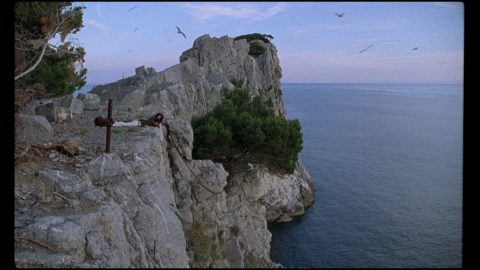A man’s grief-induced amnesia provides excellent inspiration for a journey through the past in Sara Fgaier’s powerful debut Weightless.
Weightless Goes in Search of Love Past

Exploring the Outer Edge of Film

A man’s grief-induced amnesia provides excellent inspiration for a journey through the past in Sara Fgaier’s powerful debut Weightless.

The ten-years-in-the-making Tezeta is a lively and fascinating portrait of Armenia’s contribution to Ethiopian musical history.

With a tight 1:1 ratio and an eye for arresting visuals, Windless sure looks great, but its grief-laden tale fails to hit with the viewer emotionally.

With a stripped-back aesthetic, Mara Tamkovich’s debut Under the Grey Sky carefully surveys the cost of practicing independent journalism in modern-day Belarus.

Jean-Christophe Meurisse’s Plastic Guns doubles down on the provocations of Bloody Oranges in an off-kilter, hilarious and deeply nasty farce.

Marcelo Caetano’s Baby might combine reliable and clichéd tropes, but Caetano’s sex work study succeeds thanks to its keen observation of queer communities.

Sean Baker continues his deeply humanist exploration of sex workers’ complex inner lives with the touching and charming Russian-American fairytale Anora.

Paul Schrader’s latest Oh, Canada is a self-reflexive work that fails to combine its various threads into a satisfying treatise on life’s regrets.

Coralie Fargeat’s The Substance boasts impressive technical sound design and monster work but suffers from a lack of compelling female characters.

There is beauty and meaning littered throughout the repetitive actions of Jonás Trueba’s endlessly playful Directors’ Fortnight romcom The Other Way Around.